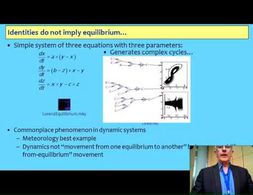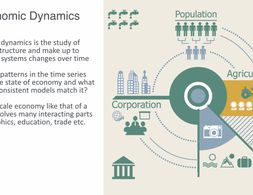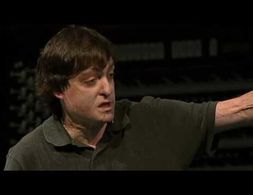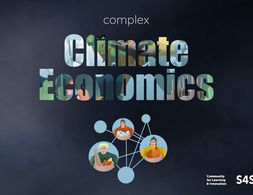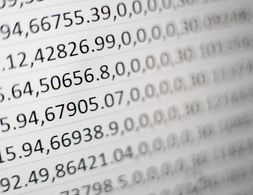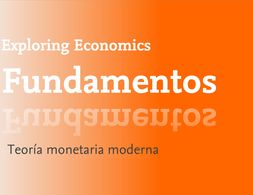✕
409 results
Neoliberalism is dead. Again. After the election of Trump and the victory of Brexit in 2016, many diagnosed the demise of the ideology of Margaret Thatcher, Ronald Reagan, Augusto Pinochet, and the WTO. Yet the philosophy of the free market and the strong state has an uncanny capacity to survive and even thrive in crisis.
The 2007-2008 financial crisis exposed the shortcomings of mainstream economic theory with economists unprepared to deal with it. In the face of this, a major rethinking of economics seems necessary and in presenting alternative approaches to economic theory, this book contributes to the rebuilding of the discipline.
The Austrian tradition in economic thought had a profound influence on the development of post-war economics including neoclassical orthodoxy, game theory, public choice, behavioral economics, experimental economics and complexity economics.
Since the Middle Ages, literature has portrayed the economic world in poetry, drama, stories and novels. The complexity of human realities highlights crucial aspects of the economy. The nexus linking characters to their economic environment is central in a new genre, the "economic novel", that puts forth economic choices and events to narrate social behavior, individual desires, and even non-economic decisions.
How can we establish new institutions and practices in order to use fare-free public transport as a beacon for sustainable mobility and a low-carbon lifestyle? The author of this essay elaborates on how practice theory and institutional economics can help to answer this question.
That’s why it is time, says renegade economist Kate Raworth, to revise our economic thinking for the 21st century. In Doughnut Economics, she sets out seven key ways to fundamentally reframe our understanding of what economics is and does.
Los economistas evolutivos examinan cómo y por qué cambia la economía. Este énfasis en la naturaleza cambiante del capitalismo es la característica crucial que los distingue de sus homólogos no evolutivos. En consecuencia, sus temas más frecuentes son: el crecimiento económico, el cambio estructural, los procesos y sistemas de innovación, el cambio tecnológico, el cambio institucional y el desarrollo económico.
In this overview paper, Laura Porak reviews the history of industrial policy in the European Union before the background of a Cultural Political Economy approach.
an interactive guide to the game theory of why & how we trust each other
Según la economía neoclásica, el problema económico central es la naturaleza limitada de los recursos sociales. Debido a esta escasez, la economía como ciencia debe estudiar la organización de una economía para instaurar el bienestar mediante la asignación óptima de recursos.
Steve Keen discusses DSGE modeling and microfoundations by asking the question if it is ideologically possible to derive macroeconomics from microeconomics.
What is game theory? Game theory is a way of thinking about strategic interactions between people, which makes it a crucial component of economics, political science, international relations, psychology and a variety of other disciplines that deal with the complexities of human interaction in decision making.
Think Academy Think Academy
In this short video behavioural economist, Dan Aerily talks about how our cognitive illusions will trick us into believing something that is otherwise deemed irrational by the homo economicus. It raises and probes into some very interesting questions that defy the neoclassical rational behaviour.
Shadow banking became one of the main features of modern market based financial capitalism and financial globalisation. Daniel Gabor locates this development in a Super-Cycle framework and sketches out opportunities to launch a new cycle that is green and just through financial regulation and publicly organised sustainable finance.
Can pluralism in economics be useful to tackle the fight against climate change? How can diversity in methods and ideas allow for a better understanding of the issue of the climate crisis? What solutions do different schools of thought offer to overcome the most pressing challenge of the 21st Century? Our Rethinker Henrika Meyer will give you some answers and give you a glimpse of the solutions pluralism offers to tackle the fight against climate change.
Jason Smith takes a stab at blind faith in the efficiency of the price mechanism to provide market information. To do so, he calls upon Information Theory and Generative Adversarial Networks to argue the price mechanism is faulty and skewed towards supply.
"Yuliya Yurchenko is a senior lecturer and researcher in political economy at University of Greenwich. She is currently in Ukraine on an extraordinary leave. And while she writes that she is, for the moment, in relative safety, that could change any moment. Being a Ukrainian, an activist and an academic, Yuliya traveled to Ukraine on Feb 19, 2022 as part of a fact-finding and solidarity mission with a number of MPs, trade unionists and journalists. The goal, she says, of this mission is to connect with civil society organizations, trade unions, activists and politicians, and “to express direct, cross-border solidarity from the UK working class to the Ukrainian working class.”
Is capitalism the context where gender inequalities are reproduced, or is capitalism something more than a context? What are the differences among women and how can we place them theoretically and politically. Reproductive work, is it a women’s work? These questions are disscused in a three-session workshop.
Information and skills required to make more sustainable choices every day.
The third edition of Political Economy: The Contest of Economic Ideas is a fully updated overview of the political economy and its connection with social concerns. This book investigates the main traditions of economic ideas and provides a 'big picture' overview of the analytical tools and value judgements associated with competing schools of economic thought.
Examine what would happen if we were to deploy blockchain technology at the sovereign level and use it to create a decentralized cashless economy. This book explains how finance and economics work today, and how the convergence of various technologies related to the financial sector can help us find solutions to problems, such as excessive debt creation, banks getting too big to fail, and shadow banking.
In a changing world that has been shaken by economic, social, financial, and ecological crises, it becomes increasingly clear that new approaches to economics are needed for both theoretical and empirical research; for applied economics as well as policy advice.
This book argues that mainstream economics, with its present methodological approach, is limited in its ability to analyze and develop adequate public policy to deal with environmental problems and sustainable development. Each chapter provides major insights into many of todays environmental problems such as global warming and sustainable growth.
Markets are the focus in modern economics: when they work, when they don’t and what we can or can’t do about it. There are many ways to study markets and how we do so will inevitably affect our conclusions about them, including policy recommendations which can influence governments and other major organisations. Pluralism can be a vital corrective to enacting real policies based on only one perspective and a plethora of approaches provide alternatives to the canonical view. Although they have differing implications, these approaches share the idea that we should take a historical approach, analysing markets on a case-by-case basis; and they share a faith in the power of both individuals and collectives to overcome the problems encountered when organising economic activity.
The relationship between race and capitalism is one of the most enduring and controversial historical debates. The concept of racial capitalism offers a way out of this impasse.
How the brain works, how we learn, and why we sometimes make stupid mistakes.
Feminist economics is a key component of the movement for pluralism in economics and one that has, to some extent, been acknowledged by the mainstream of the profession. It seeks to highlight issues which affect women because (it claims) they have not traditionally been recognised in a field dominated by men. On top of this, it seeks to carve out a space for women in the discipline, both for intrinsic reasons of fairness and diversity and because it means that women’s issues are more likely to be highlighted going forward.
An essay of the writing workshop on Nigeria’s Readiness for and the Effect of the Fourth Industrial Revolution
By conducting a discourse analysis (SKAD) in the field of academic economics textbooks, this paper aims at reconstructing frames and identity options offered to undergraduate students relating to the questions ‘Why study economics?’ and ‘Who do I become by studying economics?’. The analysis showed three major frames and respective identity offerings, all of which are contextualized theoretically, with prominent reference to the Foucauldian reflection of the science of Political Economy. Surprisingly, none of them encourages the student to think critically, as could have been expected in a pedagogical context. Taken together, economics textbooks appear as a “total structure of actions brought to bear upon possible action” (Foucault), therefore, as a genuine example of Foucauldian power structures.
After completing the module, participants should be able to have general overview on the theory of commons. They can differentiate between neoclassical, new institutional and social/critical commons theory and can use these theories to assess real life common-pool resource management and commoning pratices.
La teoría monetaria moderna (TMM) es una escuela de pensamiento macroeconómico y monetario centrada en el análisis del sistema monetario y crediticio y, en particular, en la cuestión de la creación de crédito por parte del Estado. Bebe de la tradición poskeynesiana y del chartalismo, que fue elaborada por Georg Friedrich Knapp (Ehnts 2020). La TMM cuestiona tres falsas creencias elementales respecto a la teoría monetaria que surgieron en el periodo neoclásico, y puede así entenderse como una alternativa a la concepción neoclásica del dinero.
Necesitamos cookies. Pincha en “Aceptar” para ayudarnos a hacer de Exploring Economics una mejor plataforma.











